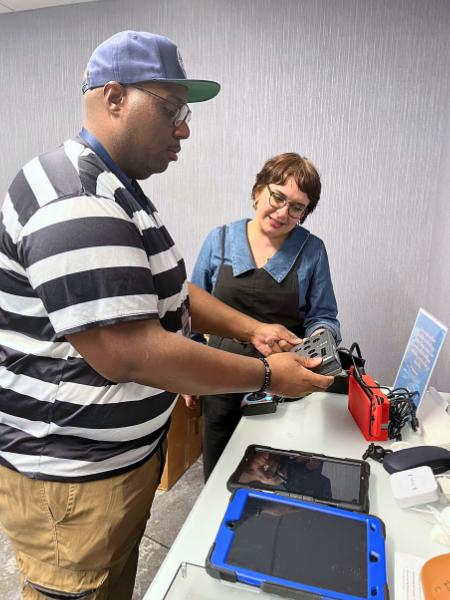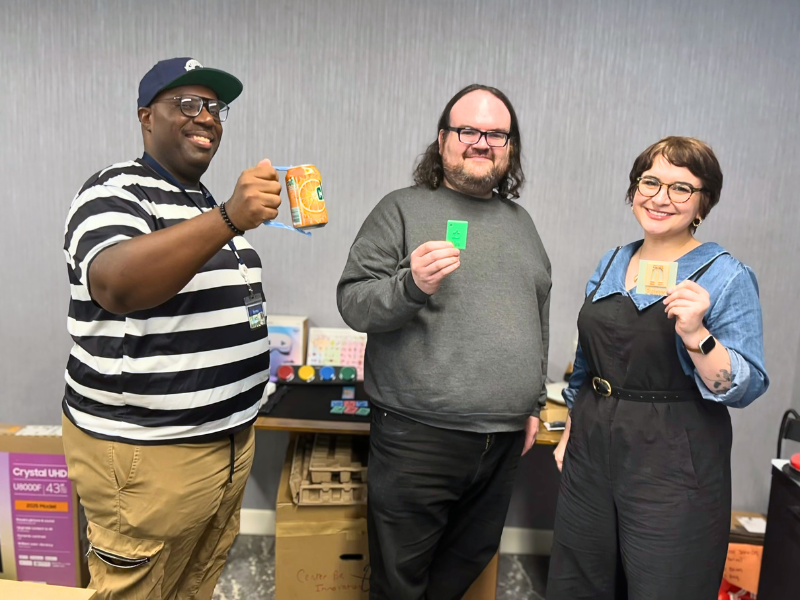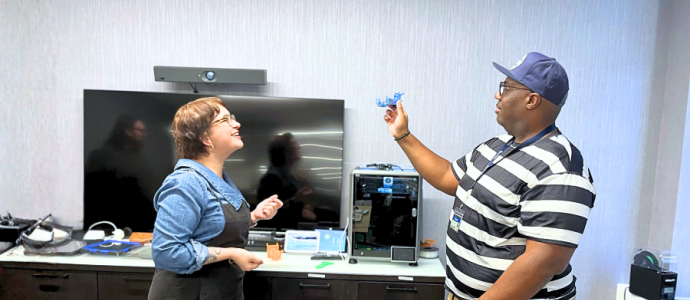For people with intellectual and developmental disabilities (I/DD), technology is more than convenience. It is the key to communication, safety, learning, and independence. Yet nationwide, access remains deeply limited. A recent study of Medicaid Home- and Community-Based Services (HCBS) found that less than 3% of people with I/DD were projected to receive assistive technology (AT) services, despite strong evidence that AT improves quality of life, health, and autonomy.

YAI is working to change that.
Across programs and schools, YAI uses assistive technology with a strongly person-centered approach. Launched in 2020, the Center for Innovation and Engagement (CIE) helps people explore how adaptive tools can support their goals. Instead of relying on standard, “out-of-the-box” solutions, the Center matches each person with technology that reflects their needs, preferences, and vision for independence. The aim is simple: close the gap between what technology makes possible and what people with I/DD actually receive.
"The great thing about tech is that it’s so customizable to whatever your level of need is, and it brings the tools to the people and meets them where they are currently at,” said Carmine Cammarata, a YAI Person-Centered Technology Specialist. “Despite having a disability, people we support deserve to have access to the same tools everyone else has."
Tech in Action: Health, Home, Safety & Communication
People supported through the Center use smartwatches to track movement and sleep, seizure-detection wearables, breathing devices like Moonbird, and smart hubs that provide medication reminders. Tools like electric toothbrushes, bidets, and adaptive clothing support personal hygiene and reduce reliance on staff, while apps such as Seeing AI make everyday tasks more accessible for people who cannot rely on standard print.
At home
The Center helps people cook, manage routines, and navigate daily living more safely. Induction cooktops, smart ovens, and Brava ovens support safer food preparation, while iPads and tablets provide access to budgeting tools, music, smart-home controls, and virtual appointments. Laptops enable people to take classes, prepare for the GED, apply for jobs, and stay connected with family. Even low-tech tools like 3D-printed zipper pulls and weighted utensils contribute meaningfully to greater independence.
Safety and community participation
Fall-detection smartwatches, personal alarms, sensor mats can alert staff if someone at risk gets out of bed. Ring doorbells or smart door locks support people living more independently.
Communication and connection
For communication, CIE provides AAC apps on tablets, as well as creative tools like podcasting equipment and VR headsets for social engagement, exercise, and stress management.
“The opportunities that technology offers this community are too big and too important to overlook,” said Gary Milchman, Acting CEO of YAI. “If the technologies we’re offering can help someone in our programs live on their own or travel independently so they can find work, then we’ve accomplished something tremendous."

The Center also works with Manhattan Star Academy and the International Academy of Hope to connect students with technology that builds independence and supports their transition into adulthood. CIE staff hold quarterly AT forums with school teams to share expertise and collaborate on best practices.
Technology should open doors. Whether helping someone speak their mind, manage their home, or discover a love of learning, YAI is using innovation to ensure people with I/DD can live fuller, more self-directed lives.
Your support can make a difference this holiday season. Consider donating today in support of the essential role of assistive technology in the lives of people with disabilities.

